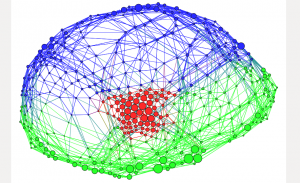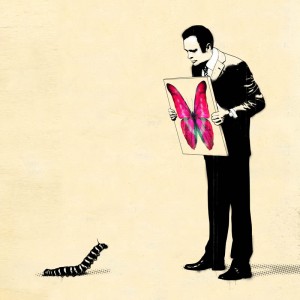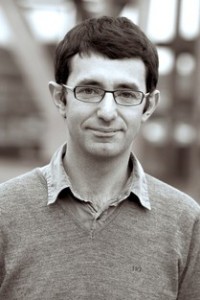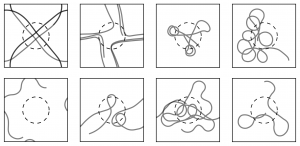Next Tuesday, May 28th, remember: at 11am, Mike Beaton.
Title: Towards a Scientifically Tractable, Direct Realist, Sensorimotor Account of Experience
Abstract: The sensorimotor account of experience has arguably not lived up to its early promise. I suggest that this is because a full-blown sensorimotor account needs to reject an assumption shared by most consciousness researchers, namely that first person experience corresponds to processes in the head. I argue instead that when we are experiencing an object or property in the world, the experienced object is literally part of the subjective experience. This is a form of direct realism. The sensorimotor account shows us (in ways which can be made highly analytic and mathematical) what objects are, such that we may enact them, and what experience is, such that it may directly, constitutively involve these external objects. This externalist account of experience matches our first-person phenomenology much better than the standard, internalist view; it also makes it much clearer how we can have genuine knowledge of the external world. Action-based views of perception, such as this one, should respond to apparently problematic cases such as locked-in syndrome, not by referring to covert action, but rather by referring to counterfactual links to overt action (this use of counterfactuals is completely normal in science). Direct realist views should respond to arguments from illusion by noting that the detailed flow of subjective experience is different when we are really encountering an object, and when we only seem to be. Brain dynamics remain a crucial enabling part of experience, but not the only part; experience itself is the ongoing, meaningful relationship between subject and world.Next Tuesday, May 28th, remember: at 11am, Mike Beaton.
Title: Towards a Scientifically Tractable, Direct Realist, Sensorimotor Account of Experience
Abstract: The sensorimotor account of experience has arguably not lived up to its early promise. I suggest that this is because a full-blown sensorimotor account needs to reject an assumption shared by most consciousness researchers, namely that first person experience corresponds to processes in the head. I argue instead that when we are experiencing an object or property in the world, the experienced object is literally part of the subjective experience. This is a form of direct realism. The sensorimotor account shows us (in ways which can be made highly analytic and mathematical) what objects are, such that we may enact them, and what experience is, such that it may directly, constitutively involve these external objects. This externalist account of experience matches our first-person phenomenology much better than the standard, internalist view; it also makes it much clearer how we can have genuine knowledge of the external world. Action-based views of perception, such as this one, should respond to apparently problematic cases such as locked-in syndrome, not by referring to covert action, but rather by referring to counterfactual links to overt action (this use of counterfactuals is completely normal in science). Direct realist views should respond to arguments from illusion by noting that the detailed flow of subjective experience is different when we are really encountering an object, and when we only seem to be. Brain dynamics remain a crucial enabling part of experience, but not the only part; experience itself is the ongoing, meaningful relationship between subject and world.Next Tuesday, May 28th, remember: at 11am, Mike Beaton.
Title: Towards a Scientifically Tractable, Direct Realist, Sensorimotor Account of Experience
Abstract: The sensorimotor account of experience has arguably not lived up to its early promise. I suggest that this is because a full-blown sensorimotor account needs to reject an assumption shared by most consciousness researchers, namely that first person experience corresponds to processes in the head. I argue instead that when we are experiencing an object or property in the world, the experienced object is literally part of the subjective experience. This is a form of direct realism. The sensorimotor account shows us (in ways which can be made highly analytic and mathematical) what objects are, such that we may enact them, and what experience is, such that it may directly, constitutively involve these external objects. This externalist account of experience matches our first-person phenomenology much better than the standard, internalist view; it also makes it much clearer how we can have genuine knowledge of the external world. Action-based views of perception, such as this one, should respond to apparently problematic cases such as locked-in syndrome, not by referring to covert action, but rather by referring to counterfactual links to overt action (this use of counterfactuals is completely normal in science). Direct realist views should respond to arguments from illusion by noting that the detailed flow of subjective experience is different when we are really encountering an object, and when we only seem to be. Brain dynamics remain a crucial enabling part of experience, but not the only part; experience itself is the ongoing, meaningful relationship between subject and world.




 Date and time: 25th June 2013, at 11.00
Date and time: 25th June 2013, at 11.00